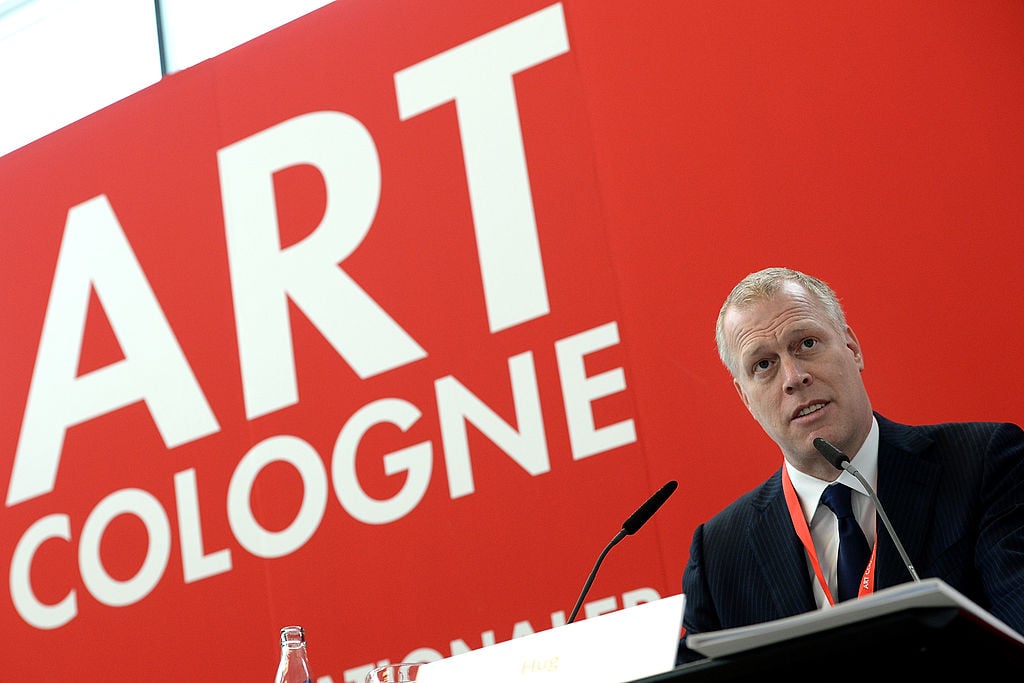
As if we needed more proof that the art-fair calendar is too crowded, a new scheduling fracas has entered the mix.
After overlapping with the dates of Berlin Gallery Weekend (BGW) in 2017, Art Cologne rushed to announce its dates for 2018, moving their public opening days to April 19 – 22.
However, a quick phone call to the organizers of Art Brussels confirmed that these same dates are already taken by the Belgian fair. Independent Brussels, which launched in 2015, also traditionally holds its edition in the same week, though that fair has not yet released fixed dates. (In addition, the eighth edition of Glasgow International also opens on the same weekend, making it harder for any dealers who might have artists presenting in the biennial festival.)
The clash over BGW this year initially seemed like a battle was brewing between the two German art hubs, Berlin and Cologne, but instead it brought the organizers to the negotiating table and ended up initiating a new venture, the Art Berlin fair, which will hold its first-ever edition this September.
Can the scheduling conflict see the Cologne fair collaborating with Brussels, too? The cities are less than two hours apart, and collectors from the region usually attend both; it would not be unthinkable for the fairs to shuttle their VIPs across the German-Belgian border. The question is rather what choices would exhibitors make, and how would this affect the quality of the fairs, which have been increasingly facing competition.
Art Cologne’s director Daniel Hug told artnet News in an email, “In the past, Art Cologne has generally taken place always in the second or third week of April, before Gallery Weekend Berlin and after Art Brussels. […] Next year, we again take place in the third week of April, one week before Gallery Weekend Berlin. Because of all these art events taking place during this time, it is sometimes hard not to collide with anyone and this time we unfortunately collide with Art Brussels. But we are in discussions with Brussels on how we could maybe collaborate during that time.”
Anne Vierstraete,managing director of Art Brussels. Photo: David Plas.
Anne Vierstraete, the director of Art Brussels, has not replied to artnet News’s request for comment about a possible collaboration yet. The fair was unprepared for the news of the potential conflict.
The 2017 editions of both fairs, which were a week apart, included several dealers that participated in both, such as Daniel Templon, Pearl Lam Galleries, Marlborough Contemporary, and Thomas Brambilla, to name a few. Art Cologne has succeeded in luring some blue-chip galleries to its recent editions, most notably Gagosian this year—a feat that Art Brussels has yet to match.
The regional art fairs might have to find ways to consolidate as a bigger competitor is about the enter the scene: MCH Group, the company behind Art Basel, has announced its plans to launch regional art fairs—starting with India Art Fair in February 2017—and is coming to the region with Art Düsseldorf in November.
Weighing in on the impact this might have on the Brussels art scene, Belgian collector Alain Servais told artnet News in an email, “A close collaboration between Brussels and Cologne could be an opportunity for both. Indeed, at their origins those fairs were competitors in a landscape where there were five international art fairs. In today’s globalized art market, they are only two little points and none of them has individually the weight and aura to bring out the largest players (particularly from out of Europe). But if they were creating a Rhineland/Benelux main event it would have more chance to make a worthy week for international visitors.”